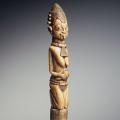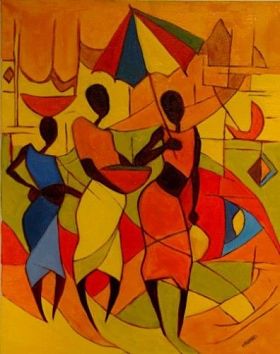22. Women Have No Tribe: Gender in African Tradition
What archeology, ethnography, and philosophical interpretation tell us about the diverse and often ambiguous roles of men and women in traditional African societies.
Themes:
• I. Amadiume, Male Daughters, Female Husbands: Gender and Sex in an African Society (London: 1987).
• I. Amadiume, Reinventing Africa: Matriarchy, Religion and Culture (New York: 1997).
• A. Cornwall (ed.), Readings in Gender in Africa (Bloomington: 2005).
• C.A. Diop, The Cultural Unity of Black Africa: the Domains of Patriarchy and of Matriarchy in Classical Antiquity (London: 1989, orig. pub. Paris: 1963).
• S. Kent, Gender in African Prehistory (Walnut Creek: 1998).
• O. Oyewumi, The Invention of Women: Making an African Sense of Western Gender Discourses (Minneapolis: 1997).
• J.D.Y. Peel, “Gender in Yoruba Religious Change,” Journal of Religion in Africa 32 (2002), 136-66.
• J.B. Shetler (ed.), Gendering Ethnicity in African Women’s Lives (Madison: 2015).
• B. Wambui, “Conversations: Women, Children, Goats, Land,” in C. Jeffers (ed.), Listening to Ourselves: A Multilingual Anthology of African Philosophy (Albany: 2013).







Comments
Cheikh Anta Diop rang a bell.
Cheikh Anta Diop rang a bell. It's the name of one of the tracks of a CD I have by the Senegalese master drummer Doudou N'Diaye Rose.
In reply to Cheikh Anta Diop rang a bell. by Thomas Mirus
Rose does Diop
Now that's good to know! Here is the track so everyone else can hear it. Would have been appropriate if the track had a lead female vocal.
In reply to Rose does Diop by Peter Adamson
True story: I had a
True story: I had a Senegalese Uber driver in NYC a couple years ago who told me she grew up next door to Rose in Dakar and had a few drum lessons with him. Small world these days.
Add new comment